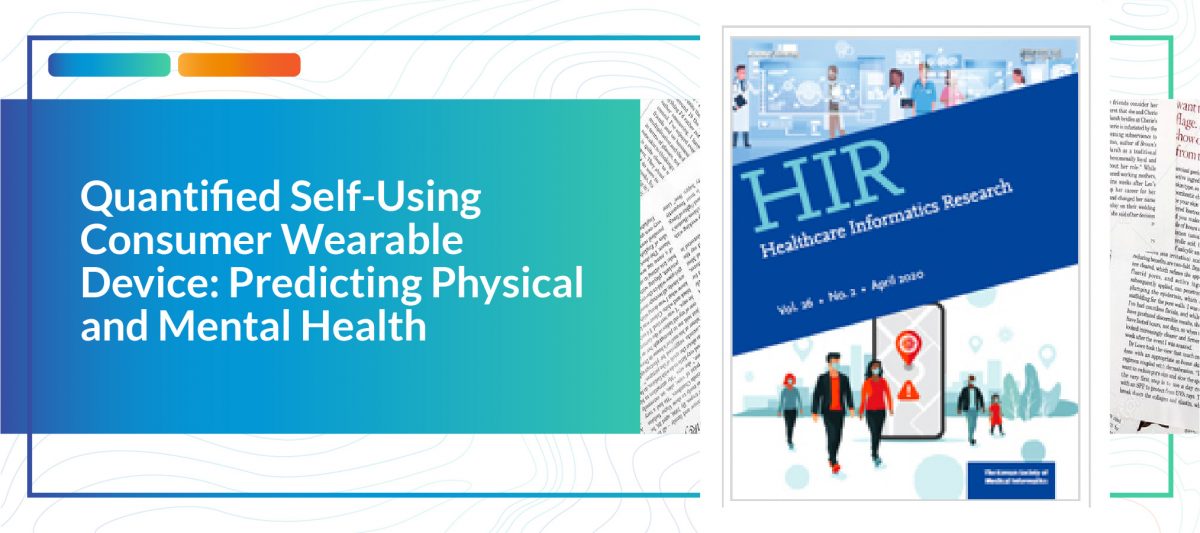Quantified Self-Using Consumer Wearable Device: Predicting Physical and Mental Health

Objectives: Recently, wearable device technology has gained more popularity in supporting a healthy lifestyle. Hence, researchers have begun to put significant efforts into studying the direct and indirect benefits of wearable devices for health and wellbeing. This paper summarizes recent studies on the use of consumer wearable devices to improve physical activity, mental health, and health consciousness. Methods: A thorough literature search was performed from several reputable databases, such as PubMed, Scopus, ScienceDirect, arXiv, and bioRxiv mainly using “wearable device research” as a keyword, no earlier than 2018. As a result, 25 of the most recent and relevant papers included in this review cover several topics, such as previous literature reviews (9 papers), wearable device accuracy (3 papers), self-reported data collection tools (3 papers), and wearable device intervention (10 papers). Results: All the chosen studies are discussed based on the wearable device used, complementary data, study design, and data processing method. All these previous studies indicate that wearable devices are used either to validate their benefits for general wellbeing or for more serious medical contexts, such as cardiovascular disorders and post-stroke treatment. Conclusions: Despite their huge potential for adoption in clinical settings, wearable device accuracy and validity remain the key challenge to be met. Some lessons learned and future projections, such as combining traditional study design with statistical and machine learning methods, are highlighted in this paper to provide a useful overview for other researchers carrying out similar research.
Healthcare Informatics Research 26(2)
Bens Pardamean, Haryono Soeparno, Arif Budiarto, Bharuno Mahesworo, James W. Baurley
